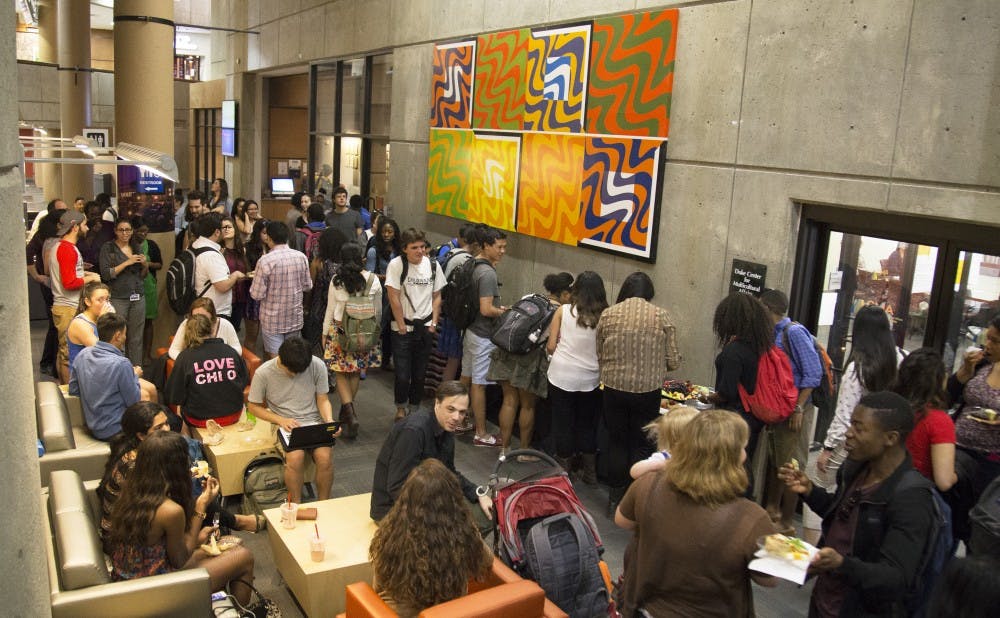Mi Gente, Duke’s undergraduate Latino/a organization, announced Sunday that it will end its collaboration with the Office of Admissions in planning Latino Student Recruitment Weekend.
The announcement—which was made in a letter addressed to Duke University signed by Mi Gente 2015-16 and published in The Chronicle—stated that instead of planning the weekend, Mi Gente will channel its energy into demanding that its “voice be heard” and its “community be represented” on campus. The letter also called for the creation of a Latino/a cultural center, more Latino/a faculty members, a larger office space for Mi Gente and Latino/a students and the formation of a Latino studies department, including a major, minor and tenured faculty.
J’Nai Adams, program coordinator at the Center for Multicultural Affairs and the faculty advisor for Mi Gente, declined to comment on the group’s decision. Senior Gloria Tomlinson and sophomore Elizabeth Barahona, co-presidents of Mi Gente, could not be reached in time for publication.
Mi Gente's announcement noted that they had sent a letter to President Richard Brodhead in 2005 requesting that a cultural center be established and more Latino/a faculty administrators be hired. Eleven years later, the writers said, the group’s demands have not been met.
In the Faculty Diversity Initiative’s biannual report in 2013, 2.1 percent of faculty identified as Latino/a. This figure remained stagnant from 1993 until 2012—during which time the number of black faculty more than tripled, according to a January 2014 article published in The Chronicle.
The percentage of Latino/a undergraduates, meanwhile, has increased in recent years. A record 11 percent of the 1,750 students in the Class of 2019 are Latino/a, compared to 10 percent for the Class of 2018, and seven percent for both the Class of 2017 and the Class of 2016.
Tomlinson told The Chronicle in September that the presence of more Latino students on campus during LSRW was one of the reasons for the increased yield.
Attendance at LSRW—which included a dance showcase and faculty-led discussion new this year—has remained consistent over the years, with approximately 60-80 attendees at the weekend last April. Over half of the students who attend LSRW enroll at Duke the following fall, said Ashley Taylor, senior admissions officer, Latino recruiter and LSRW coordinator, in the September Chronicle article.
Instead of organizing the event this Spring, Mi Gente will collaborate with other organizations on political events, organize demonstrations and meet with administrators, members wrote in the letter.
"Duke Latinx students attended Duke on the premise that they would be able to intellectually flourish," the Mi Gente students wrote. "Instead, we have found that we must perform the duties of the administrators, educators, and admissions office. We must assert our humanity in classrooms where our professors or peer students project micro and macro aggressions, we must demand that we receive a space outside of the Bryan Center Basement, and we must plan a four day long recruitment event using undergraduate funds."
Other demands included providing need-blind admission for undocumented students, increasing pay for all employees to an hourly wage of $15 and administering "a public apology for the routine negligence of Latinx issues on this campus."
The writers of the letter closed by stating that they expected a formal response from the University by Jan. 29 at 5 p.m.
Get The Chronicle straight to your inbox
Signup for our weekly newsletter. Cancel at any time.

